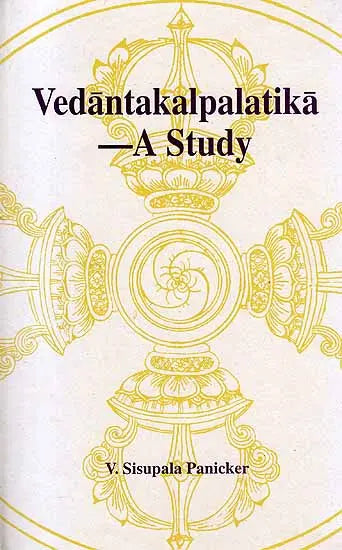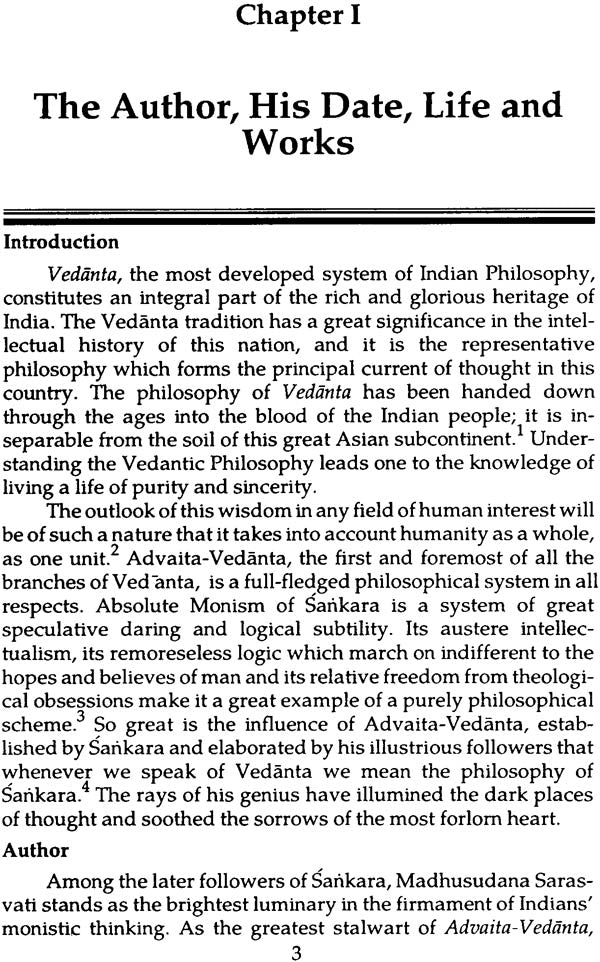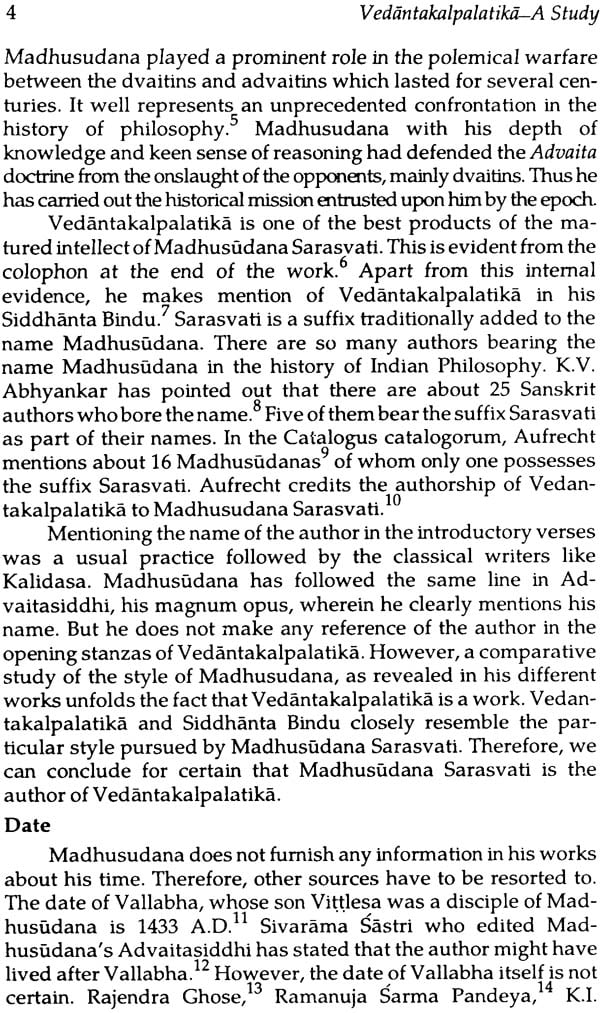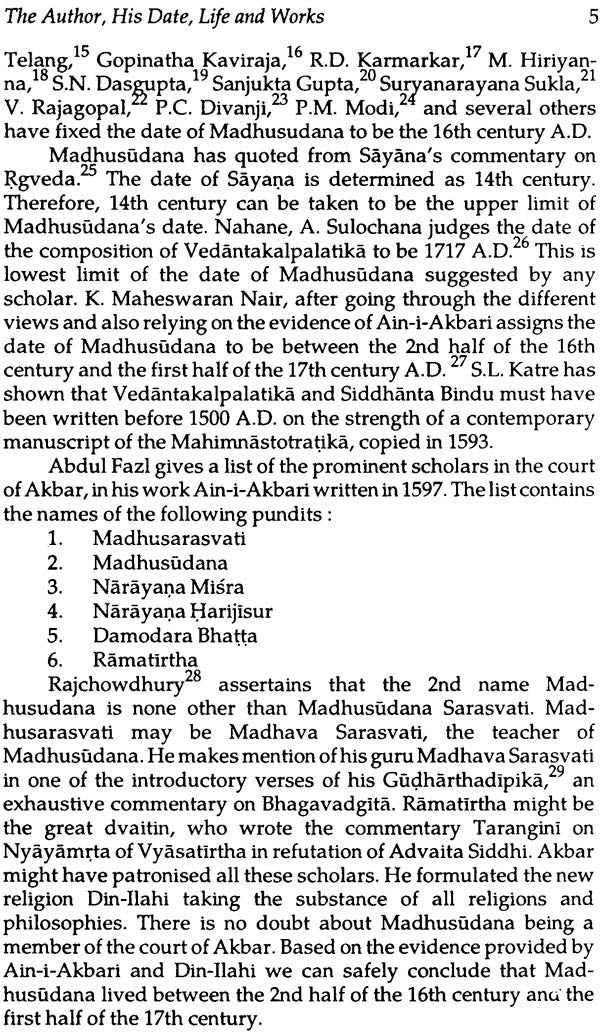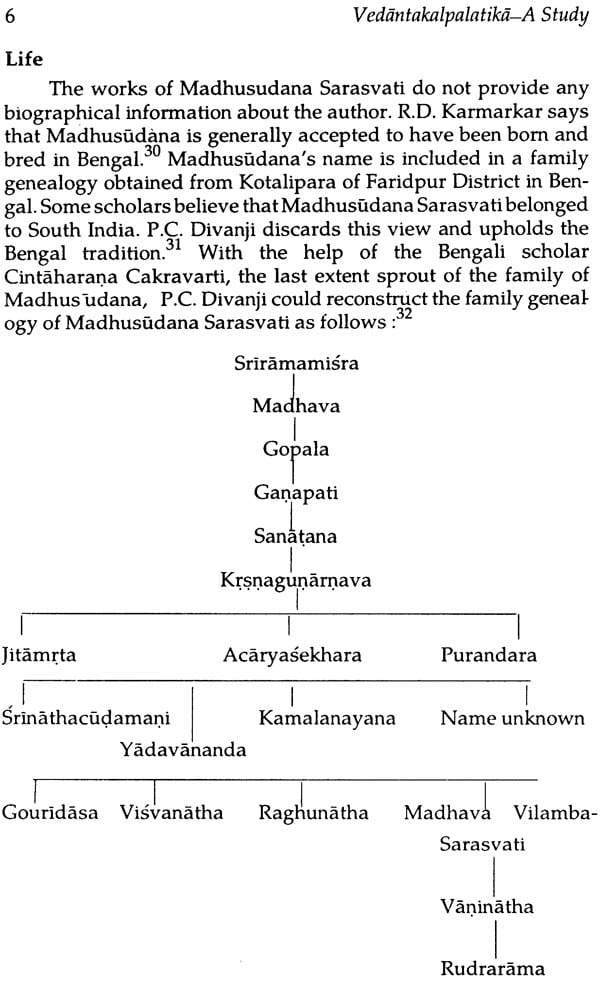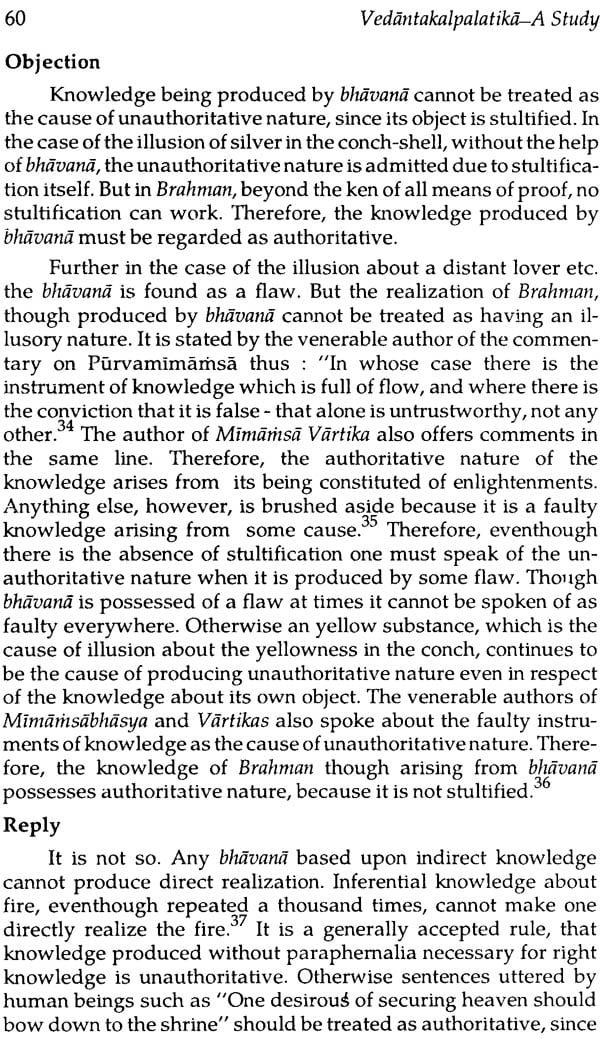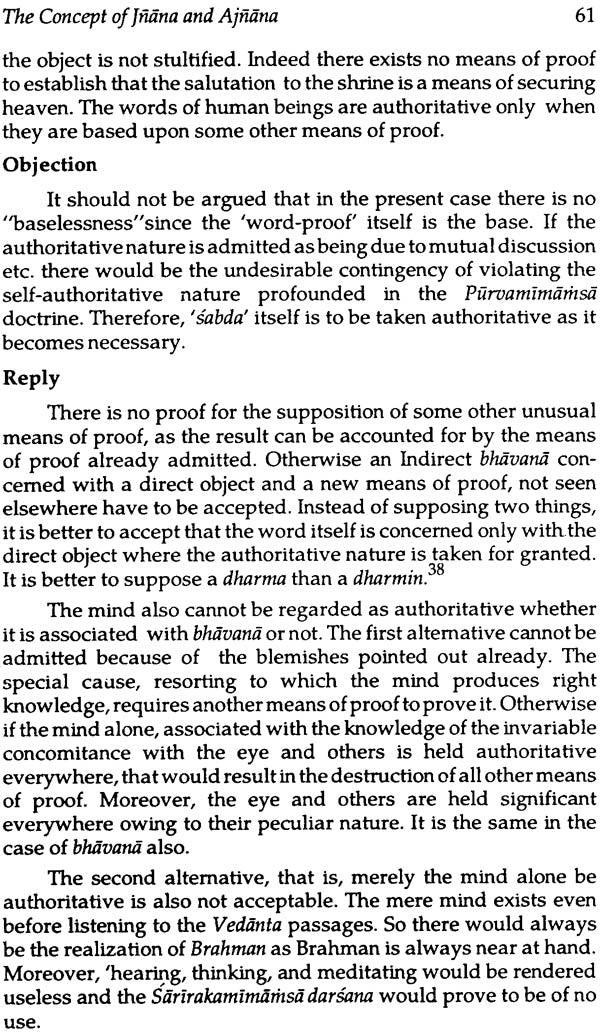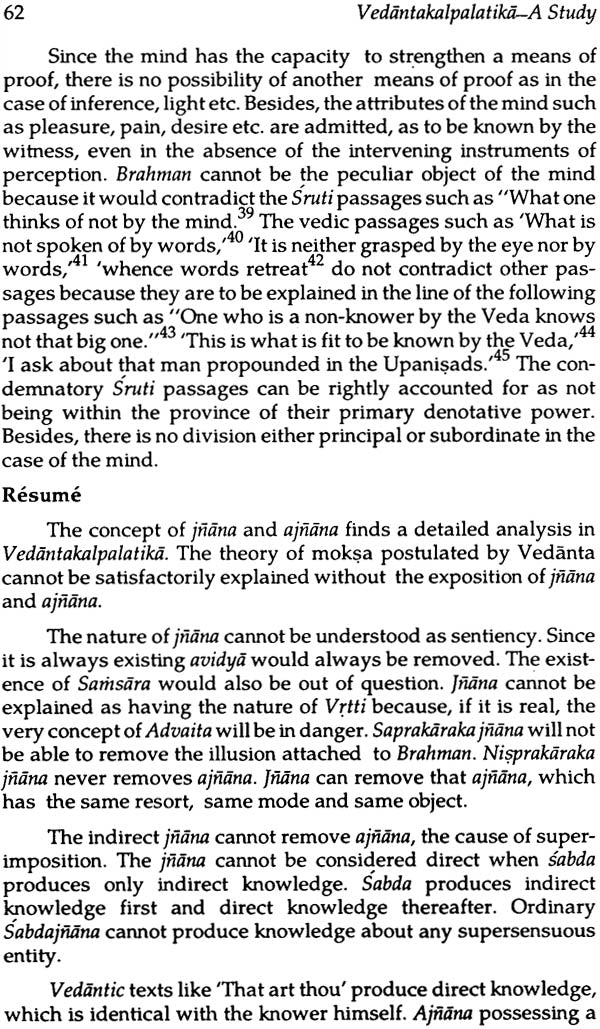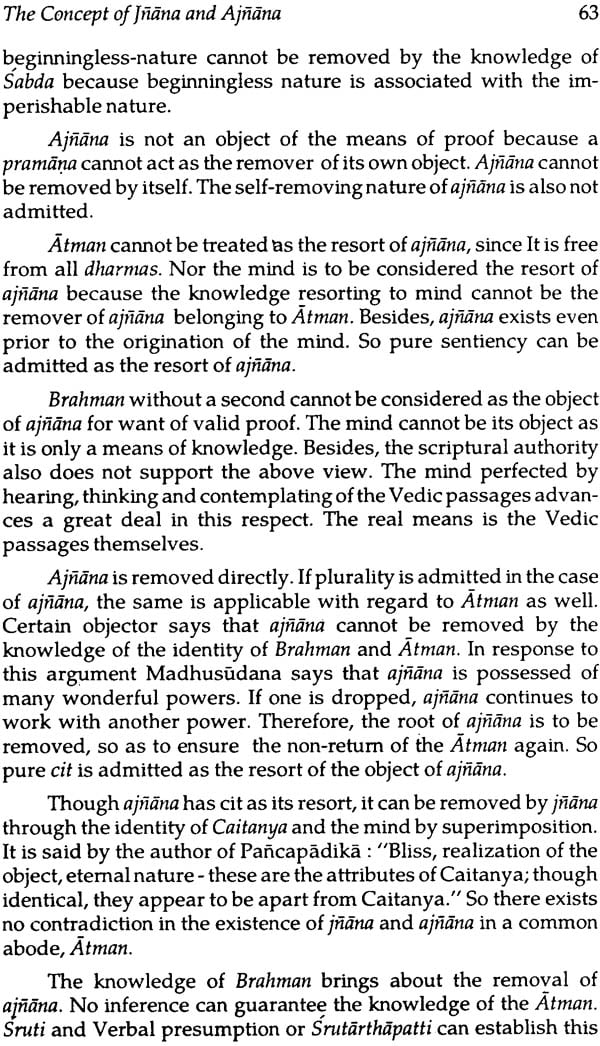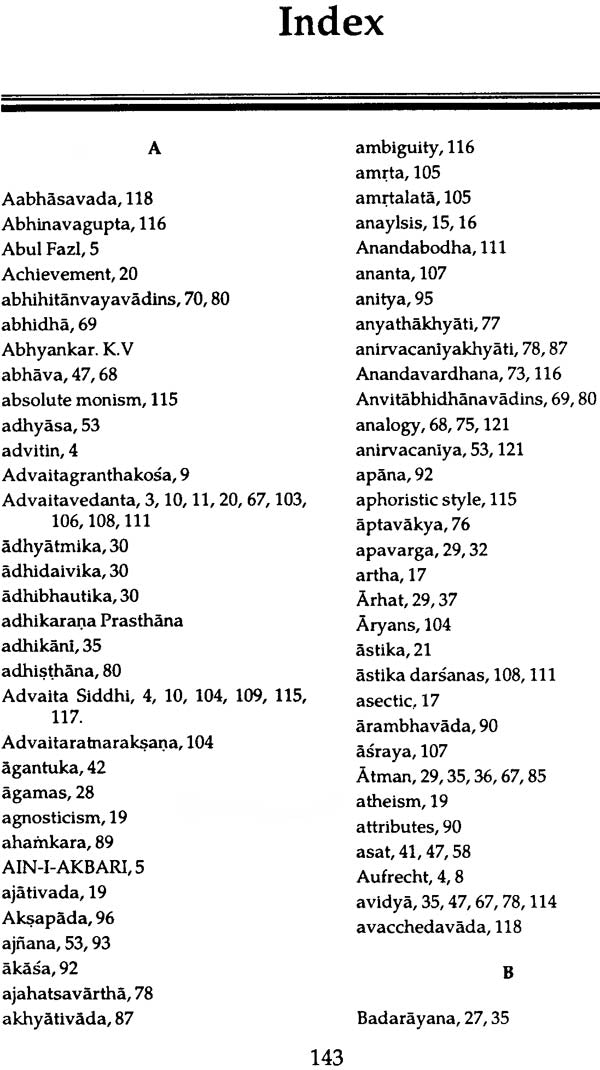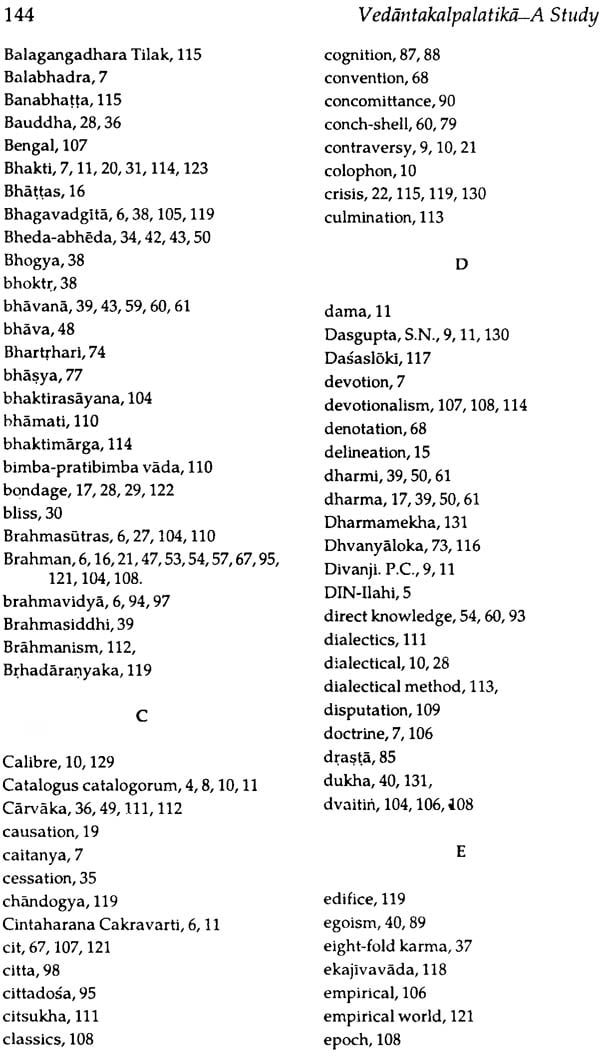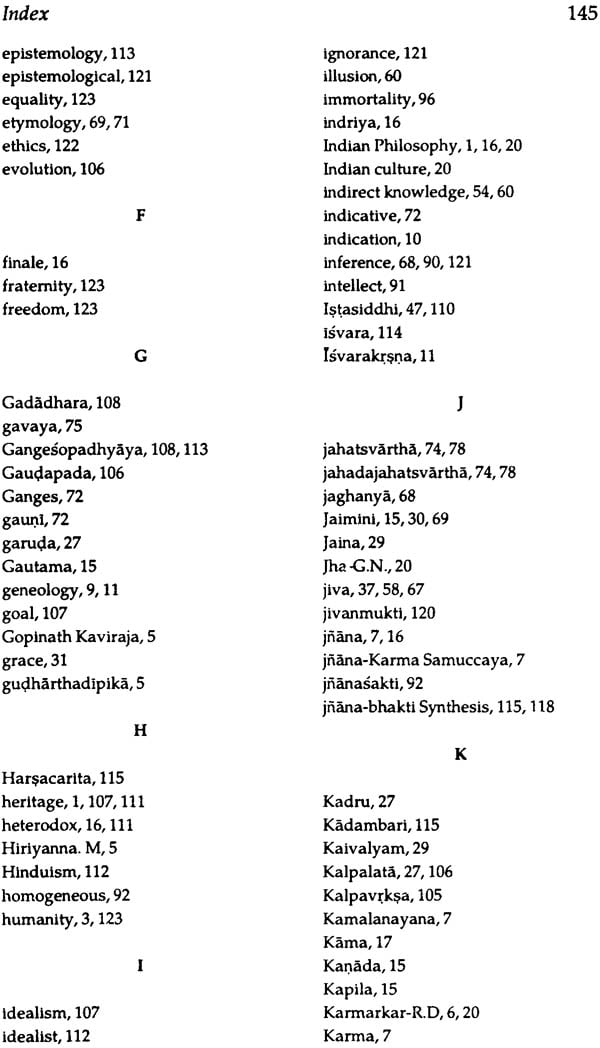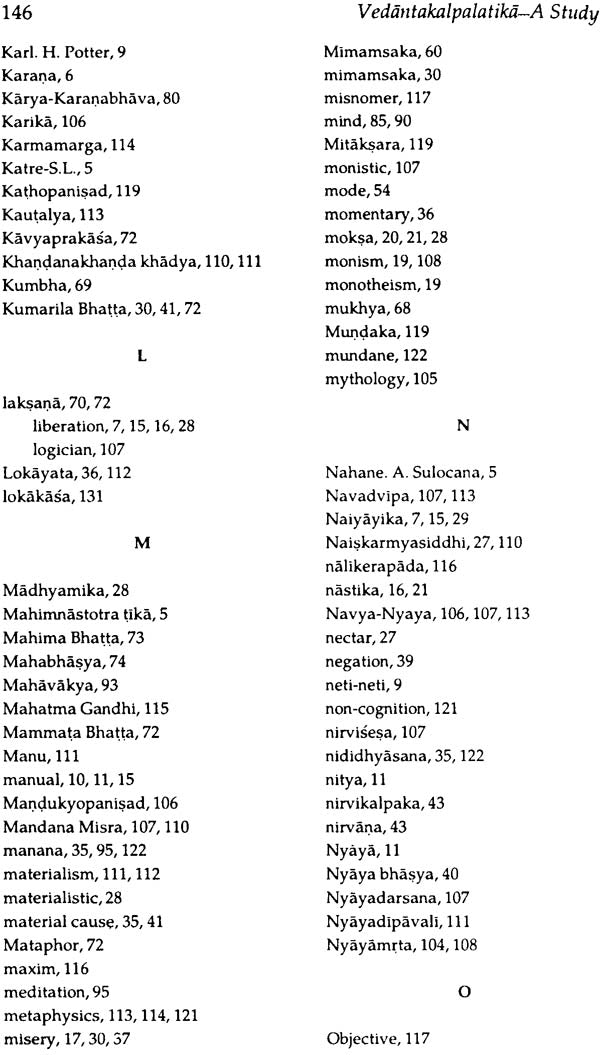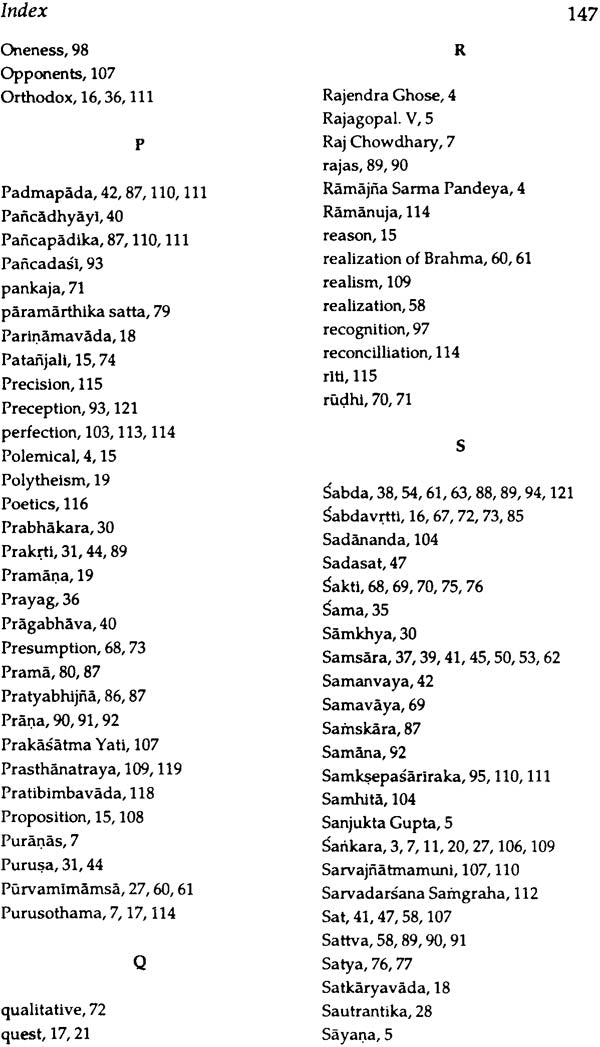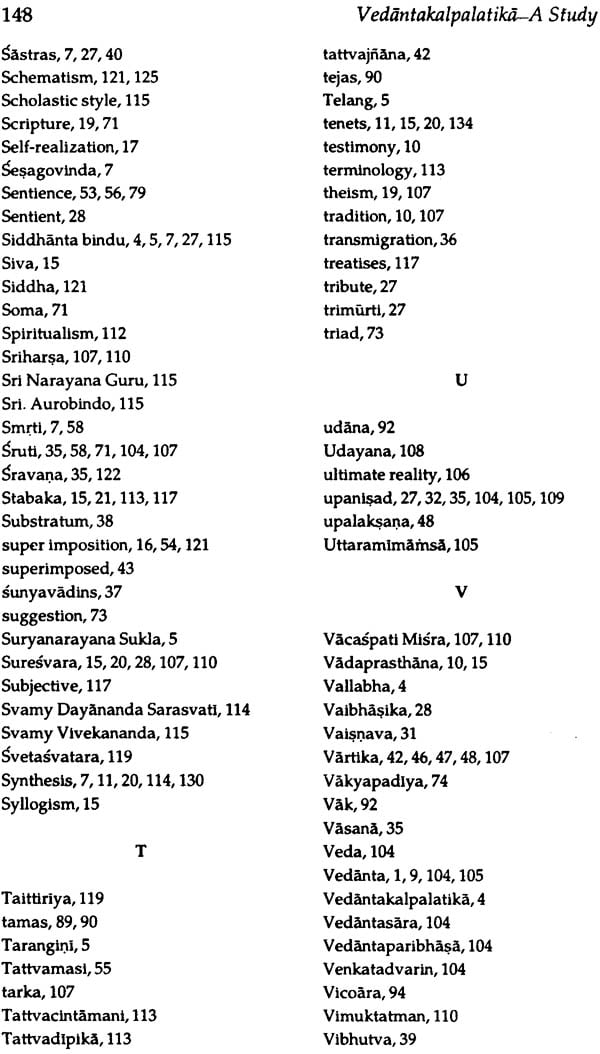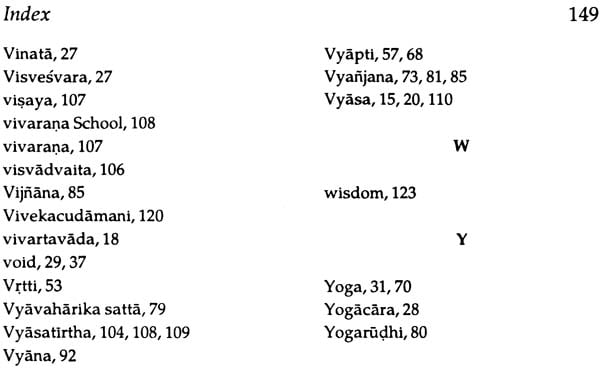Vedantakalpalatika, a study (Sri Garib Das oriental series)
Vedantakalpalatika, a study (Sri Garib Das oriental series) is backordered and will ship as soon as it is back in stock.
Couldn't load pickup availability
Genuine Products Guarantee
Genuine Products Guarantee
We guarantee 100% genuine products, and if proven otherwise, we will compensate you with 10 times the product's cost.
Delivery and Shipping
Delivery and Shipping
Products are generally ready for dispatch within 1 day and typically reach you in 3 to 5 days.
Publisher: Sri Satguru Publications
Author: V. Sisupala Panicker
Language: English
Edition: 1995
ISBN: 9788170304364
Pages: 170
Cover: Hardcover
Dimensions: 22 cm x 14.5 cm
Weight: 300 gm
About the Book
Vedantakalpalatika, a profound Advaita Vedanta treatise by Madhusudana Sarasvati, is a remarkable work exploring the depths of liberation (moksha) and the philosophy of non-dualism. This book by Dr. V. Sisupala Panicker presents a comprehensive study and interpretation of the text, divided into nine chapters across three parts:
-
Part I introduces the author, his life, works, and a brief description of Vedantakalpalatika’s nature, content, and significance.
-
Part II offers an in-depth textual examination, covering:
-
Diverse views on moksha
-
The Upanishadic perspective after refuting rival theories
-
The philosophy of jnana (knowledge) and ajnana (ignorance)
-
The concept of Brahman beyond verbal expression
-
Realization of Brahman as the central theme of liberation
-
-
Part III presents critical observations—metaphysical, epistemological, logical, and ethical—followed by a comprehensive conclusion.
This study sheds light on the synthesis of jnana (knowledge) and bhakti (devotion) within Advaita Vedanta, a distinctive feature introduced by Madhusudana to uphold monism amidst the rise of theistic philosophies like Dvaita and Visistadvaita.
Rich in philosophical analysis and aligned with research methodology, this work is an essential resource for students, scholars, and researchers of Indian philosophy, Vedanta, and Advaita traditions.

